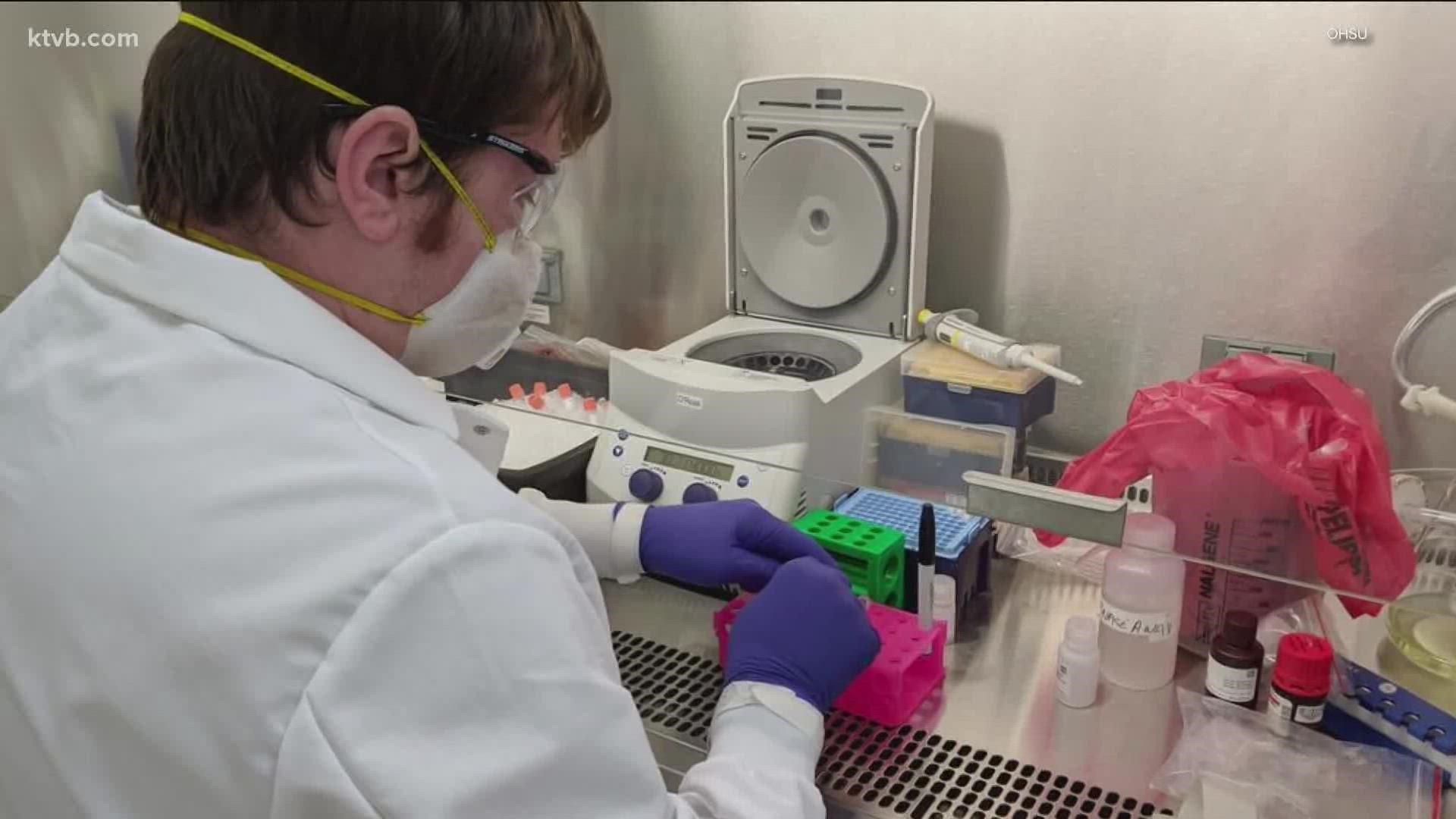BOISE, Idaho — The Idaho Department of Health and Welfare (IDHW) held its weekly media briefing about the situation of COVID-19 in the Gem State, Tuesday at 2:30 p.m.
Officials say the data is trending down in regards to daily cases, but are still very high when compared to reported cases at the start of the pandemic.
"I'm super happy to be able to say something positive because I'm usually giving bad news but yes, we have hit our peak," Dr. Kathryn Turner, Deputy State Epidemiologist, said during the briefing. "This is not over just because we're starting to see a downward trend. The case numbers are crazy high relative to what they've been earlier on in the pandemic," Dr. Turner continued.
Nearly two years into the COVID-19 pandemic, Idaho has seen new daily case numbers surge to the highest they have been since the state's first case was confirmed.
On Monday, Feb. 7, there were 1,986 reported new cases and 17 deaths in Idaho. Since the start of the pandemic, Idaho has reported 4,479 COVID-related deaths and 393,053 total confirmed and probable cases.
RELATED: Latest Idaho COVID-19 case and vaccine numbers: Interactive graphs and maps tracking the pandemic
Health officials also stressed the importance of getting vaccinated and receiving booster shots to combat the Omicron variant.
"We worry that these low numbers leave Idahoans vulnerable to future outbreaks, hospitalizations and deaths especially compared to other states where we know that rates are higher," Dr. Christine Hahn, State Epidemiologist, said. "We also want people to consider getting a booster to make sure they continue to have a high level of protection against this unpredictable virus as we continue to wait to see if we get future waves of it."
During last week's meeting, IDHW director Dave Jeppesen confirmed the crisis standards of care activation in the three local health districts remain in place, citing "a severe shortage of staffing and blood supplies."
This week, IDHW officials said if cases continue trending downward and the national blood shortage changes, they're hopeful that the crisis standards of care could be lifted. The Red Cross is still citing a shortage of blood nationally and says there has been a decline in the number of available donors.
"There's been a 10% decrease in overall blood donations since March of 2020. And a 62% drop in college and high school blood drives due to the pandemic," Elke Shaw-Tulloch, Administrator for the Division of Public Health, said. "Student donors used to account for approximately 25% of donors back in 2019. But now account for just about 10% during a pandemic."
During the briefing, Jeppesen gave a reminder that the Idaho Office of Emergency Management and DHW are giving free KN95 masks to the public.
"Over 400,000 KN95 masks have gone to 40 community partners in both rural and urban areas in the state who have made them available to community members," Jeppesen said.
It's been a combination of natural immunity plus vaccinations, mask-wearing, social distancing, and staying home when feeling sick that have contributed to the decline in cases, according to IDHW. Although Omicron is still accounting for a large percentage of new daily cases.
"So one of the things that's been different about this surge is that 14% of the cases that were reported during the last two months, during the Omicron surge, was they were reinfected," Dr. Turner said.
The infectiousness and severity of Omicron sub-lineage BA.2 are still unknown. According to Health and Welfare, the earlier Omicron variant, BA.1, is responsible for 98% of the current infections in the Treasure Valley.
The first case of the sub-variant of the Omicron COVID-19 in Ada County was confirmed by the Idaho Department of Health and Welfare on Jan.28.
Data for the daily case numbers reported in recent weeks do not include at-home "rapid test" results, people who may have COVID but have not been tested, and more than 40,700 positive lab tests still pending review and follow-up in Idaho's seven public health districts.
Those who attended the briefing from DHW include Director Dave Jeppesen; Elke Shaw-Tulloch, administrator for the Division of Public Health; Dr. Christine Hahn, state epidemiologist; Dr. Kathryn Turner, deputy state epidemiologist; Dr. Christopher Ball, chief of the Idaho Bureau of Laboratories; and Sarah Leeds, manager of the Idaho Immunization Program.
At KTVB, we’re focusing our news coverage on the facts and not the fear around the virus. To see our full coverage, visit our coronavirus section, here: www.ktvb.com/coronavirus.
Facts not fear: More on coronavirus
See our latest updates in our YouTube playlist:

